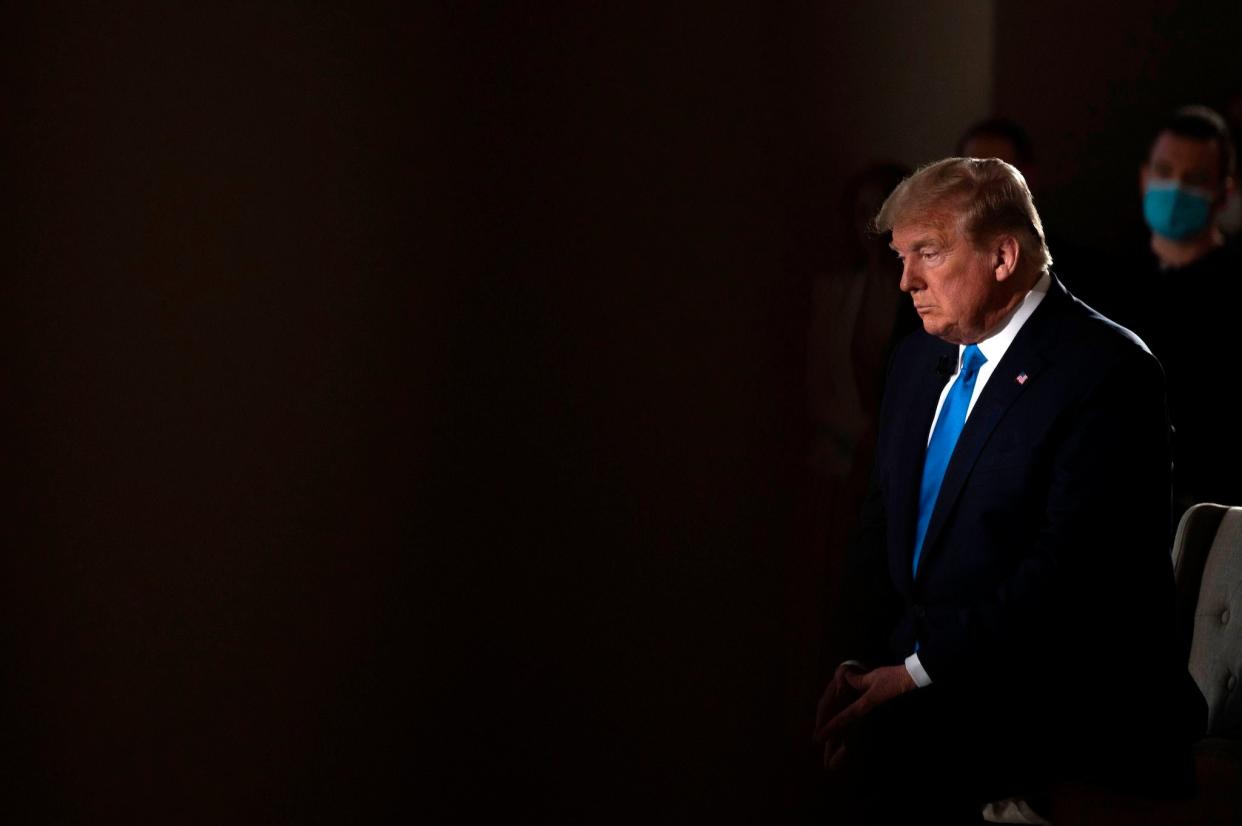Trump’s Facebook and Instagram ban referred to ‘oversight board’ and could be overturned

Facebook has referred its “indefinite” ban of Donald Trump to its oversight board, to check whether it should still stand.
The independent board – which has been likened to a supreme court – makes binding decisions that Facebook says it cannot overrule. As such, Mr Trump’s ban could be reversed if the board decides it was undertaken wrongly.
Facebook formed its oversight board late last year, amid criticism of how it made decisions to allow or ban content on its platforms. It is intended as a way of assuring users and critics that its decisions are fair and reasonable, by having them vetted by a group that includes law experts, politicians and campaigners.
While the decision to ban Mr Trump from all mainstream social networks in the wake of the attack on the Capitol has been largely applauded, it drew criticism from free speech advocates and world leaders including Angela Merkel, who called the decision “problematic”.
Nick Clegg, Facebook’s vice president of global affairs and communications, announced the company would be referring the ban to its board in a statement. He also reiterated that he believed Facebook had made the correct decision, both in banning Mr Trump and not having banned him earlier.
“We believe our decision was necessary and right,” he wrote. “Given its significance, we think it is important for the board to review it and reach an independent judgment on whether it should be upheld.”
At the time same, the board confirmed that it would “accept” the case, and said it would publish its decision on its website.
Facebook has committed to only overturn the ban if it is told to by the board, it said, and must also respond to any broader policy recommendations that it makes during the process.
The company had initially said that Mr Trump’s ban would be “indefinite and for at least two weeks", leading to questions of whether he would be allowed to return. The statements from both Mr Clegg and the board itself suggested that the ban would be permanent if it was approved.
As part of the hearing of the case, Mr Trump will be allowed to submit a “user statement” to the board through the administrators of his Facebook page, it said. Facebook will also be able to share “contextual information and a detailed explanation” for their decision.
A five-person panel will then review the case over the coming days, before making a decision that will be shared with the board and signed off by a majority of its members.
It will then be published on the board’s website, and Facebook will have seven days to implement the decision.
Mr Trump’s ban is among the first cases to be reviewed by the board, and its most high-profile by some distance. The board’s first decisions were published last month, made up of six cases that included decisions on Covid-19 misinformation and Facebook’s adult nudity policies.
As well as defending the decision to ban the then-president, Mr Clegg also argued that Facebook had been right not to ban him sooner, while noting that some people “said that Facebook should have banned President Trump long ago, and that the violence on the Capitol was itself a product of social media”.
“We have taken the view that in open democracies people have a right to hear what their politicians are saying — the good, the bad and the ugly — so that they can be held to account,” he wrote. "But it has never meant that politicians can say whatever they like. They remain subject to our policies banning the use of our platform to incite violence. It is these policies that were enforced when we took the decision to suspend President Trump’s access.
"Whether you believe the decision was justified or not, many people are understandably uncomfortable with the idea that tech companies have the power to ban elected leaders. Many argue private companies like Facebook shouldn’t be making these big decisions on their own. We agree.
“Every day, Facebook makes decisions about whether content is harmful, and these decisions are made according to Community Standards we have developed over many years. It would be better if these decisions were made according to frameworks agreed by democratically accountable lawmakers. But in the absence of such laws, there are decisions that we cannot duck.”
Read More
South Korean AI chatbot suspended after hate speech towards minorities

 Yahoo Movies
Yahoo Movies 
